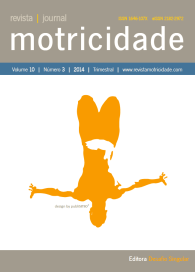Drugs: The portuguese fallacy and the absurd medicalization of Europe
DOI:
https://doi.org/10.6063/motricidade.7188Abstract
Drug decriminalization in Portugal is a failure, despite several published articles claiming exactly the opposite. This paper will show that there is an illogical campaign supporting the Portuguese drug policy and an unacceptable manipulation of factual information. A book written by Glenn Greenwald, a lawyer fluent in Portuguese, suggests the opposite of what the research data demonstrates. He claims that Portugal is a success. Mr. Greenwald is a member of the Cato Institute, an American libertarian think-tank that has been advocating for drug legalization for many years. This complex issue has been broadcast worldwide by the press, both Portuguese and international, boosting the proliferation of the ‘good news’ about the Portuguese drug policy and distorting the real analysis of what is going on in this country. This is happening to an extent that Anand Grover, the United Nations Special Rapporteur on the Right of Everyone to the Highest Attainable Standard of Physical and Mental Health, working in the area of drug dependence did invite the world to ‘reflect about human rights in drug use’ and ‘place health at the core of drug policy’. In their report, he highlighted two core issues, ‘health’ and ‘human rights.’ Could this be used to justify the approach of legalization of drugs, at any price? Have they laid down their arms and are dangerously opening the way to the medicalization of drug dependency? Surprisingly, the two recent 2010 and 2011 EMCDDA (European Monitoring Centre for Drugs and Drug Addiction Reports), which emphasized the use of substitution drugs as a main tool to tackle opioid dependence, show clearly that Europe looks eager to follow this path.Is this the right path?
Downloads
Published
Issue
Section
License
The authors of submitted manuscripts must transfer the full copyright to Journal Motricidade / Sílabas Didáticas Editions. Granting copyright permission allows the publication and dissemination of the article in printed or electronic formats, and copyrights start at the moment the manuscript is accepted for publication. It also allows Journal Motricidade to use and commercialise the article in terms of licensing, lending or selling its content to indexation/abstracts databases and other entities.
According to the terms of the Creative Commons licence, authors may reproduce a reasonable number of copies for personal or professional purposes, but without any economic gain. SHERPA/RoMEO allows authors to post a final digital copy (post-printing version) of the article on their websites or on their institutions' scientific repository.


